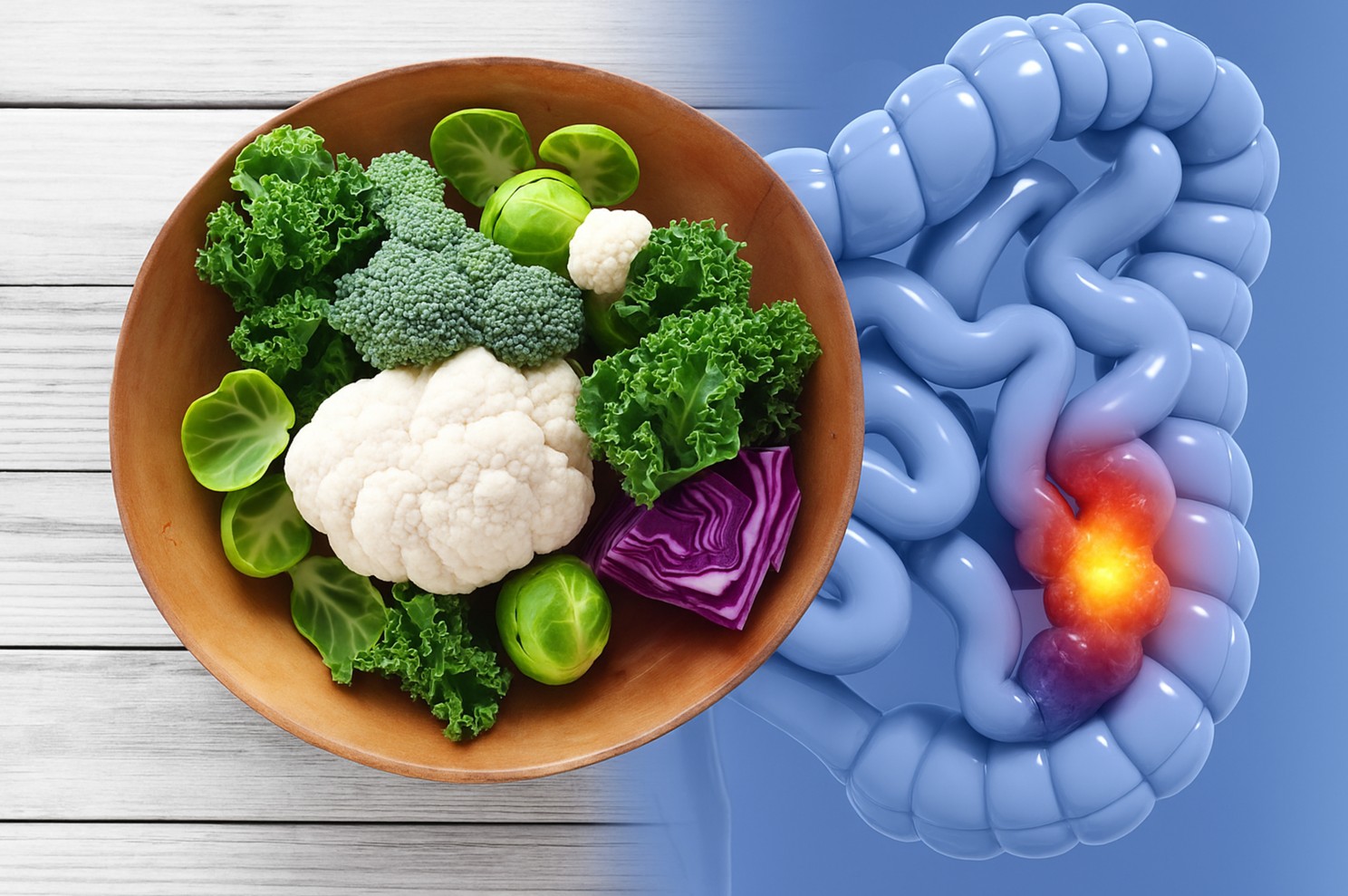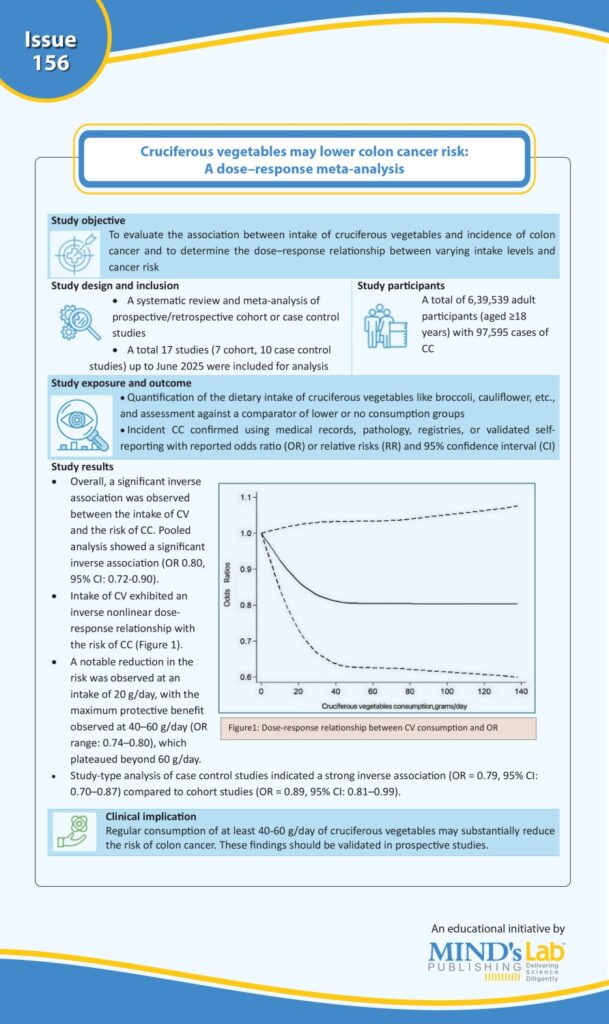
Colon cancer (CC) is the third most diagnosed cancer and the second leading cause of cancer-related deaths worldwide, with nearly 1.9 million new cases and over 900,000 deaths annually. Diet is recognized as a modifiable risk factor in the prevention of CC, with certain food groups showing strong protective effects.
Cruciferous vegetables (CV) including broccoli, cauliflower, cabbage, and Brussels sprouts are rich in glucosinolates, which break down into bioactive compounds such as isothiocyanates and indole-3-carbinol. These compounds exert chemopreventive effects by promoting carcinogen detoxification, reducing angiogenesis, inducing apoptosis, and arresting abnormal cell cycles. Previous epidemiological studies and meta-analyses have suggested an inverse association between CV intake and CC risk. However, the dose response relationship remains poorly defined. Clarifying this relationship is critical for evidence-based dietary guidance.
A large meta-analysis of 17 observational studies by Lai et al. published in BMC Gastroenterology explored the overall association and the dose response effect of the intake of cruciferous vegetables on colon cancer risk and suggested that higher intake of cruciferous vegetable was linked to a lower risk of colon cancer, with the strongest protective effect seen at 40–60 g/day (see Graphic).

(Source: Lai B, Li Z, Li J. Cruciferous vegetables intake and risk of colon cancer: A dose-response meta-analysis. BMC Gastroenterol. 2025;25(1):575. Doi:10.1186/s12876-025-04163-9.)
